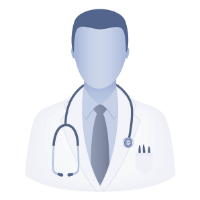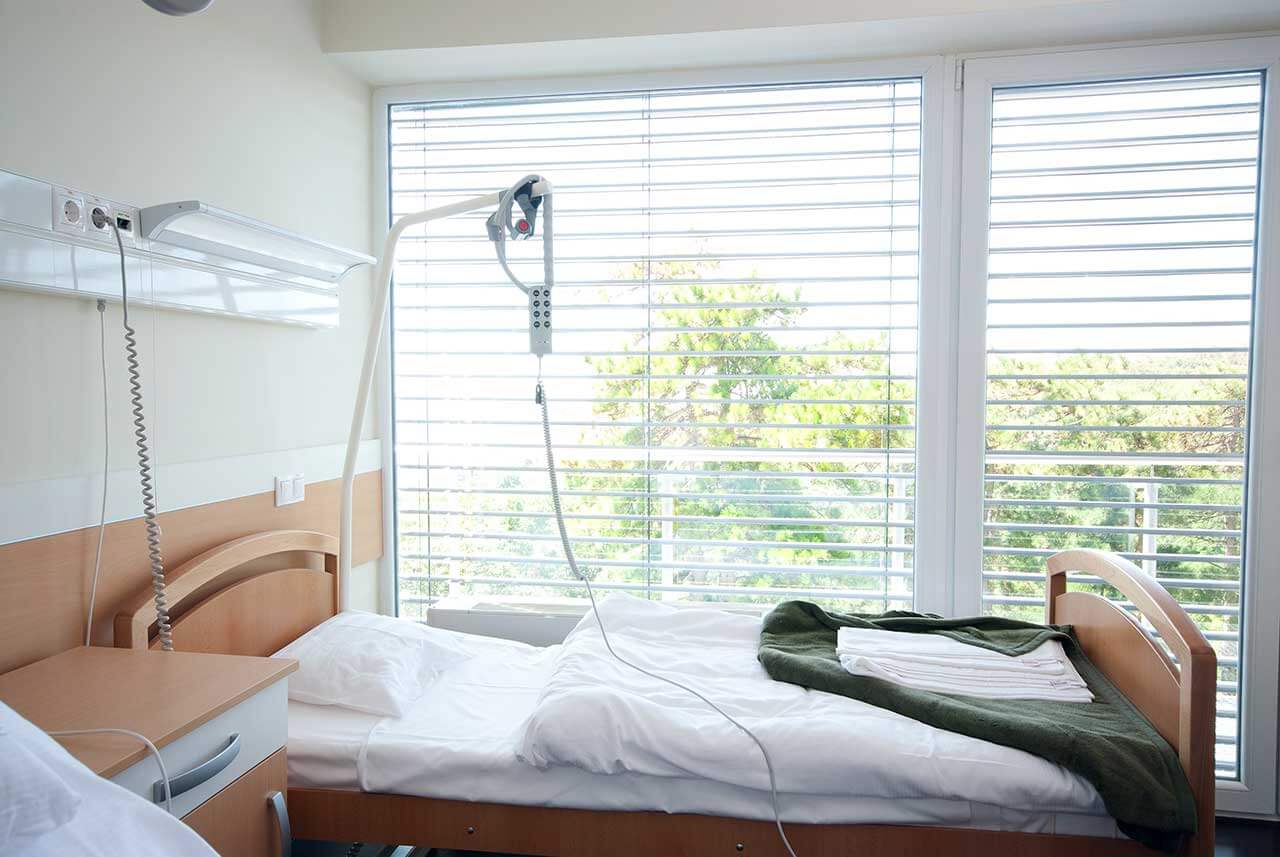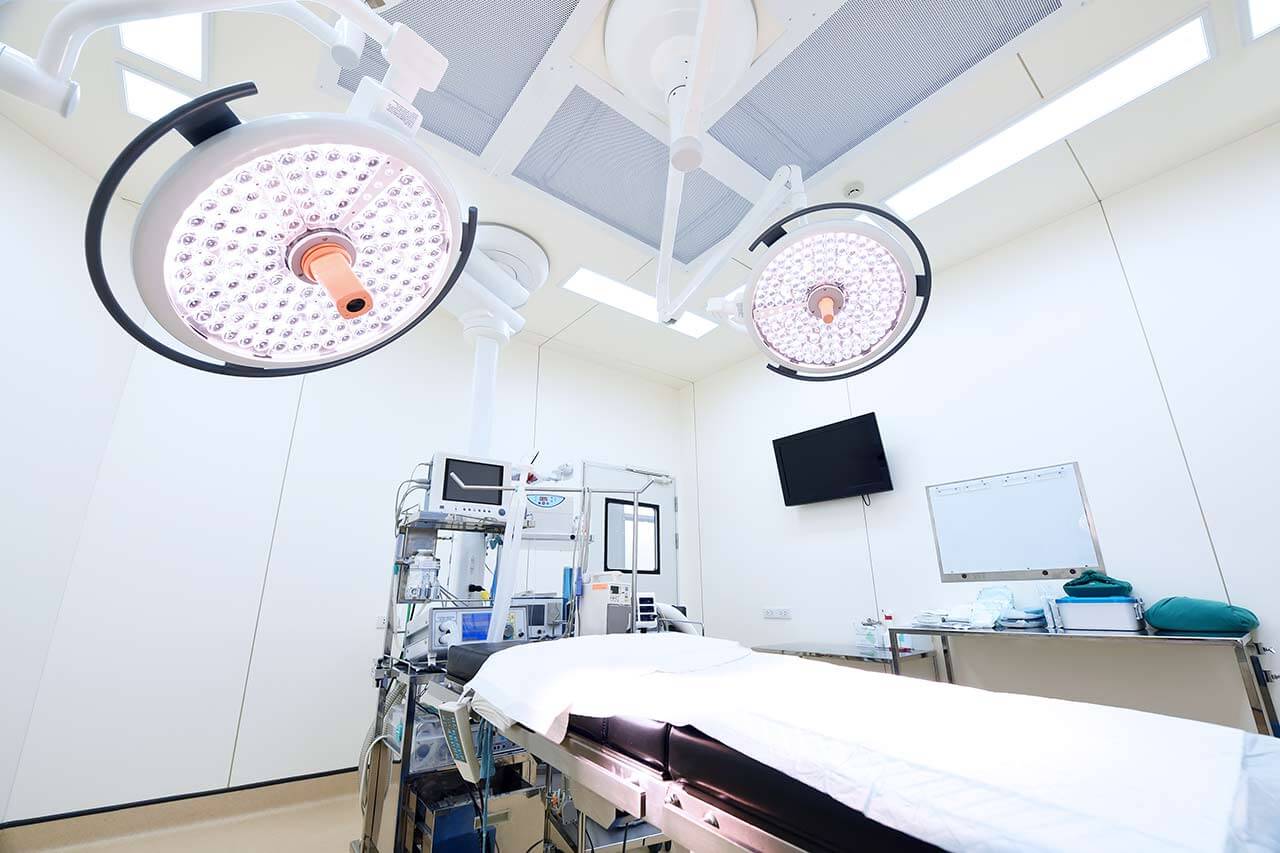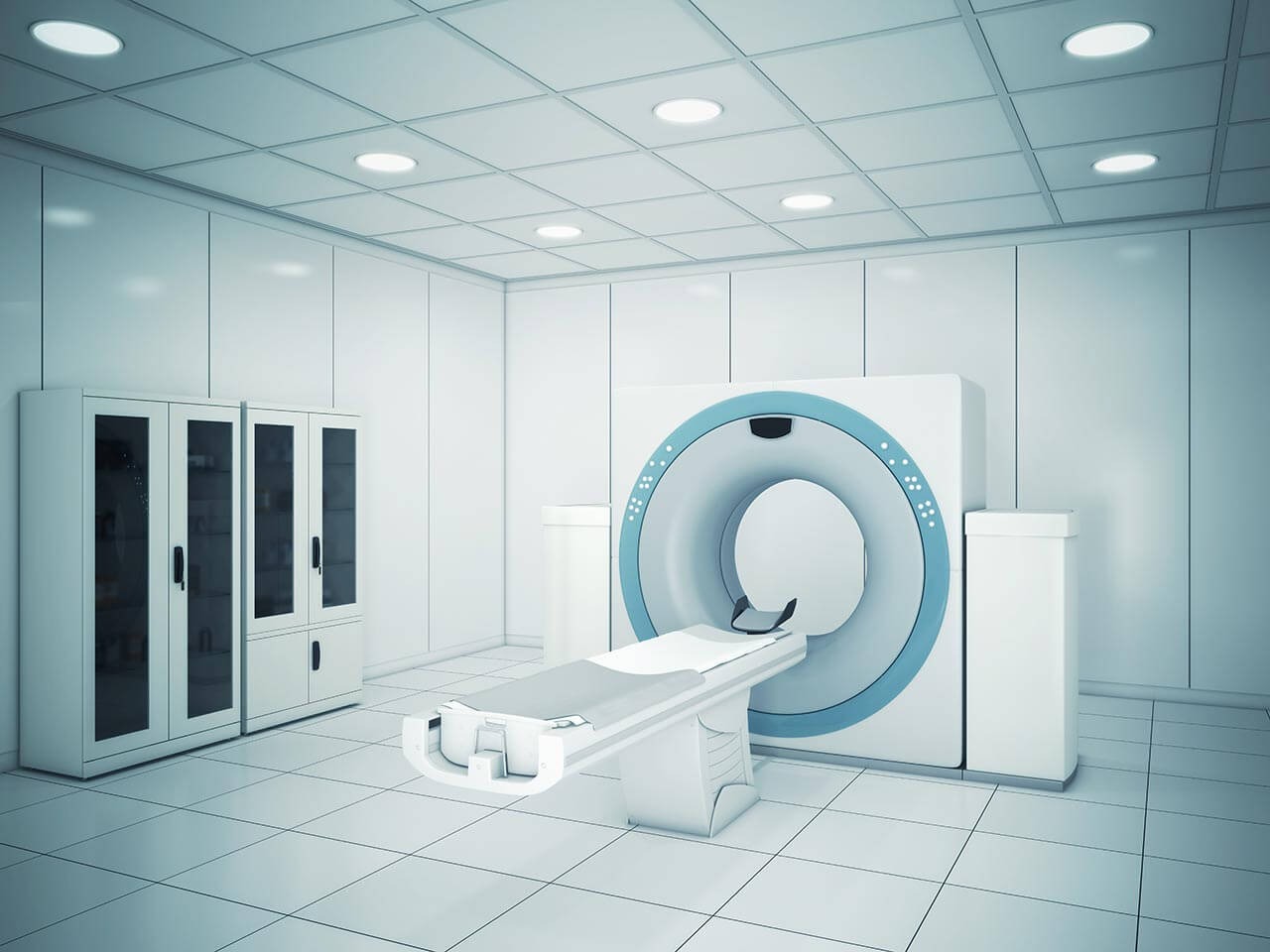
The program includes:
- Initial presentation in the clinic
- clinical history taking
- physical examination
- review of medical records
- laboratory tests:
- complete blood count
- biochemical analysis of blood
- TSH-basal, fT3, fT4
- indicators of inflammation (CRP, ESR)
- indicators blood coagulation
- otorhinolaryngological examination:
- Dix-Hallpike testing
- nystagmus testing:
- spontaneous nystagmus
- positional nystagmus
- artificial nystagmus testing
- speech audiometry
- tympanometry
- eustachian tube testing
- testing of blood pressure and buzzing
for tinnitus examination - otoacoustic emission test
- brainstem audiometry
- VEMP testing
(Vestibular evoked Myogenic Potential) - video head impulse testing
- eye movement testing
- CT of petrous pyramid
- contrast-enhanced MR
imaging on labyrinth in 3D
- preparation according to preoperative standard
- replacement of the stapes bone
of the middle ear with titanium implants - symptomatic treatment
- control examinations
- the cost of essential medicines and materials
- nursing services
- full hospital accommodation
- explanation of future recommendations
- written statement
Required documents
- Medical records
- Audiometry (if available)
- Temporal bone CT scan (if available)
Service
You may also book:
 BookingHealth Price from:
BookingHealth Price from:
About the department
The Department of Adult and Pediatric Otolaryngology at the Marienhaus Hospital St. Elisabeth Neuwied offers the full range of modern diagnostics, conservative and surgical treatment of diseases of the ear, throat and nose. Depending on the complexity of the clinical case, surgical treatment can be performed both on an inpatient and outpatient basis. The department has a specially trained team for the diagnostics and treatment of otolaryngological problems in young patients. The long experience and excellent qualifications of specialists in combination with modern technologies form a solid foundation for the provision of high-quality medical care. The department is headed by Dr. med. Joachim Hammer, who is also the head of private ENT practice.
The key areas of the department's clinical practice include:
- Diagnostics and treatment of diseases of the external, internal and middle ear
- Diagnostics and treatment of diseases of the mastoid process
- Surgical correction of pathologies and deformities of the auricle
- Diagnostics and treatment of dizziness
- Diagnostics and treatment of upper respiratory tract infections
- Diagnostics and treatment of diseases of the nasal cavity and paranasal sinuses
- Diagnostics and treatment of diseases of the oral cavity
- Diagnostics and treatment of diseases of the salivary glands
- Diagnostics and treatment of laryngeal diseases
- Diagnostics and treatment of tracheal diseases
- Diagnostics and treatment of head and neck tumors
- Diagnostics and treatment of ear tumors
- Interdisciplinary monitoring of patients with cancer
- Diagnostics and treatment of swallowing disorders
- Laser surgery
- Diagnostics and treatment of allergic reactions
- Diagnostics and treatment of sleep disorders, including snoring
- Diagnostics and treatment of other ENT pathologies
The surgical options of the department include:
- Nasopharyngeal surgery
- Pharyngeal tonsil surgery
- Palatine tonsil surgery
- Laser surgery, particularly laser tonsillectomy (tonsil reduction in children)
- Microscopic operations on the vocal cords
- Endoscopic laryngeal surgery
- Nasal surgery
- Operations on the nasal septum and nasal concha
- Microscopic and endoscopic surgery on the paranasal sinuses
- Nose reshaping (nasal septum deviation)
- Auricular surgery
- Middle ear microsurgery for the treatment of chronic inflammations and for hearing improvement
- Tympanostomy tube placement
- Plastic surgery for correction of everted ears
- Surgical treatment of snoring after the preliminary diagnostics within the Sleep Laboratory
- Tracheotomy
- Radiofrequency surgery (for example, surgery for snoring, nasal concha reduction)
- Surgery to resect neck tumors
- Surgical treatment of salivary gland diseases
- Surgical treatment of skin tumors in the ENT organs
- Other surgical services
Photo: (c) depositphotos
About hospital
The Marienhaus Hospital St. Elisabeth Neuwied is an advanced health facility with an excellent reputation in the national medical arena. It is the largest medical complex in the state of Rhineland-Palatinate. The Marienhaus Hospital St. Elisabeth Neuwied is an academic hospital of Johannes Gutenberg University Mainz and an academic hospital of Maastricht University in the Netherlands. The status of an academic hospital provides access to the very latest achievements of European medicine in diagnostics and treatment. The health of patients is in the safe hands of a highly qualified team of doctors and nursing staff. The specialists make every effort to provide each patient with the most effective and personalized care in comfortable conditions.
The hospital has 11 specialized departments, as well as day clinics, outpatient clinics, and specialized centers. Clinical practice offers such medical fields as general surgery, abdominal surgery, vascular surgery, gynecology, obstetrics, radiology, gastroenterology, diabetology, cardiology, trauma surgery, urology, spinal surgery, and pediatric and adolescent medicine.
The hospital has 429 beds for an inpatient hospital stay. The health facility admits about 19,000 inpatients and more than 35,000 outpatients annually. The hospital's specialists provide comprehensive and high-quality medical care focused on meeting the specific needs and wishes of each patient.
The hospital implemented an effective quality control system corresponding to ISO 9001 standards more than 15 years ago. The purpose of this system is to provide continuous and patient-oriented monitoring of medical and administrative processes.
Many departments in the hospital have been awarded prestigious quality certificates, including a certificate from the German Cancer Society (DKG) for the treatment of breast and gynecological cancers, a certificate from the German Cardiac Society (DGK) for the treatment of acute coronary syndrome, an EndoCert certificate for joint replacement surgery, a certificate from the German Society of Vascular Surgery (DGG), and others.
Photo: (с) depositphotos
Accommodation in hospital
Patients rooms
The patients of the Marienhaus Hospital St. Elisabeth Neuwied live in single or double rooms. All patient rooms are comfortable and designed in light colors. Each patient room has an ensuite bathroom with a shower and a toilet. The patient room furnishings include an automatically adjustable bed, a bedside table, a table and chairs for receiving visitors, a wardrobe for storing personal belongings, a telephone, and a TV. Wi-Fi access is also available throughout the hospital. Most patient rooms in the hospital have large panoramic windows, offering a beautiful view.
If desired, patients can live in enhanced-comfort rooms. Such rooms are more spacious, and they are additionally equipped with a mini-fridge, a safe, and upholstered furniture. The bathroom has a hairdryer, a cosmetic mirror, towels, a bathrobe, and toiletries.
Meals and Menus
The patients of the hospital are offered three tasty meals a day: breakfast, lunch, and dinner. There is a choice of several lunch menu options every day. Breakfast and dinner are served buffet-style, allowing patients to choose meals independently. The menu also includes daily options for dietary and vegetarian meals. Individual menus are provided for patients as well, if necessary.
The patients staying in enhanced-comfort rooms are offered tea, coffee, and juices, as well as fresh fruits and snacks, in addition to a varied three meals a day.
The hospital also houses a cozy cafe. The menu includes complex breakfasts and lunches, salads, snacks, desserts, and hot and cold drinks.
Further details
Standard rooms include:
Accompanying person
The accompanying person may stay with you in the patient room or at the hotel of your choice during the inpatient program.
Hotel
You may stay at the hotel of your choice during the outpatient program. Our manager will help you choose the best option.




